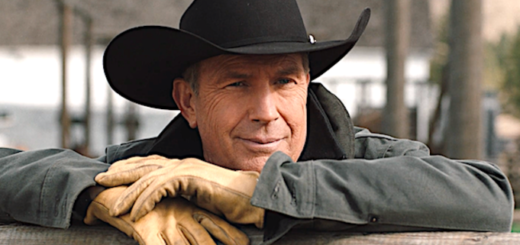“Kevin Costner’s ‘Horizon’ Underwhelms: A Cautionary Tale Against Treating Movies Like TV”
In Hollywood, there’s a long-held belief that putting your own money into a film is risky. However, I admire those who do—it’s a testament to their commitment and passion for the project. The potential for a big payoff is also a compelling factor: self-financed films can become massive successes, like Mel Gibson’s “The Passion of the Christ.” Additionally, self-financing often means backing projects that studios have turned down, allowing for more adventurous storytelling.
Kevin Costner’s decision to invest $38 million (or closer to $50 million, as he later admitted) in “Horizon: An American Saga” exemplifies this brave spirit. Costner has always been a star who cares deeply about his craft, and his financial commitment to this sprawling Western speaks to that dedication. However, “Horizon” also starkly illustrates the pitfalls of such an investment.
The box office returns for “Horizon: An American Saga — Chapter 1” have been disappointing, to say the least. With an opening weekend of just $11 million against a $100 million budget, it risks becoming a significant financial failure. This first chapter is only a part of a larger four-part project, with “Chapter 2” slated for August and “Chapter 3” in production. If “Chapter 1” struggles to find an audience, it raises serious questions about the future of the entire saga.
Costner is likely secure despite this setback; he can recuperate his investment through other revenue streams. Still, it’s worth examining what went wrong. The key takeaway is clear: don’t try to turn movies into television. That’s precisely what Costner attempted, and it backfired. After the success of “Yellowstone,” he seemingly aimed to craft “Horizon” as an episodic drama that would unfold over more than ten hours. But the approach doesn’t translate well to film.
In “Chapter 1,” viewers are introduced to numerous characters, yet it feels like the story is just beginning. This episodic structure can work on television, where viewers expect a more relaxed pace and open-ended storytelling. Movies, on the other hand, need to captivate audiences quickly—ideally within the first 40 minutes.
The issue isn’t necessarily that “Chapter 1” could have been a better miniseries; it’s about how the storytelling format doesn’t align with cinematic expectations. The film’s sprawling narrative comes across as disjointed rather than engaging. There’s an inherent risk in the multi-chapter concept: if the first installment fails to draw in viewers, why would anyone care about the next?
It’s possible that “Chapter 2” might improve or attract a different audience, but it’s unlikely that Costner envisioned a fragmented reception. He seeks an invested audience, one that feels compelled to follow his vision. While investing personal funds in a film is admirable, it also raises the stakes too high. The weight of this endeavor overshadows the narrative itself, making the film feel more like a test of audience interest than a cohesive story. Ultimately, “Horizon” may find its true home on the small screen, where it always seemed destined to belong.


